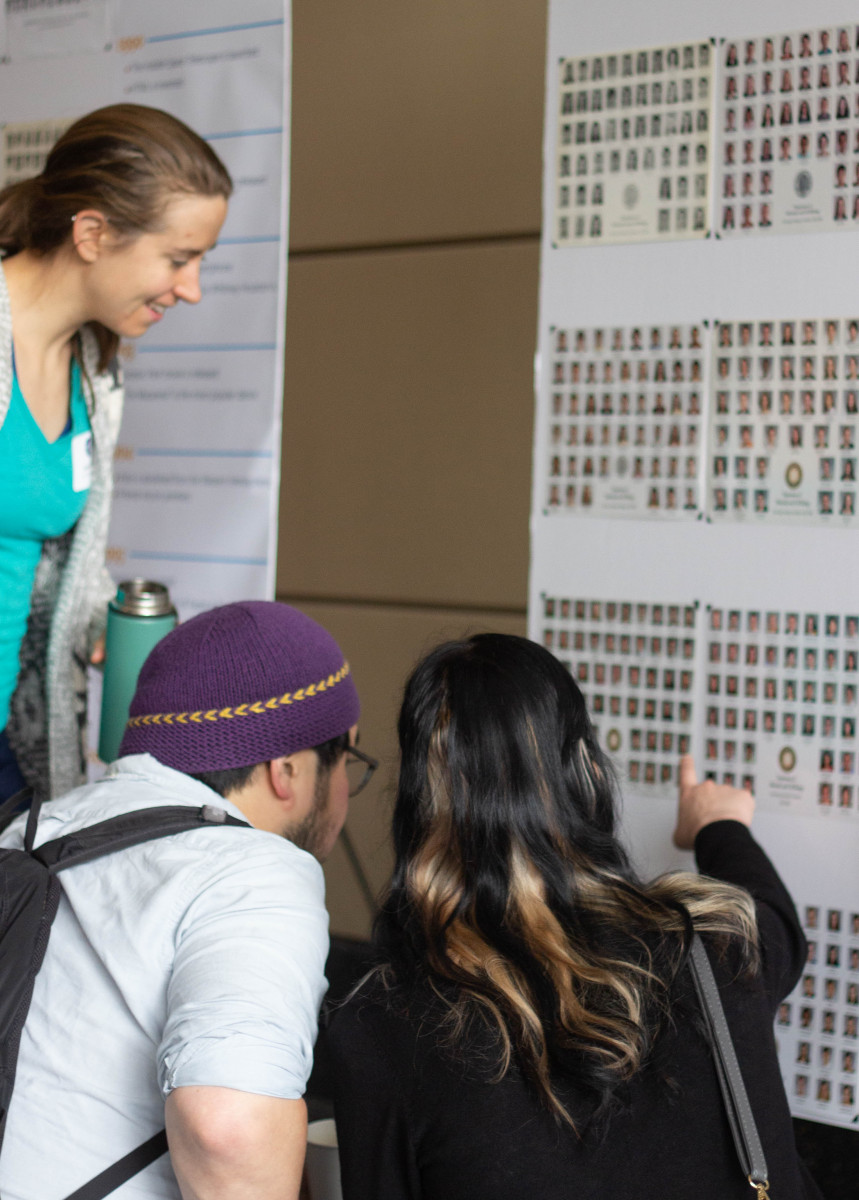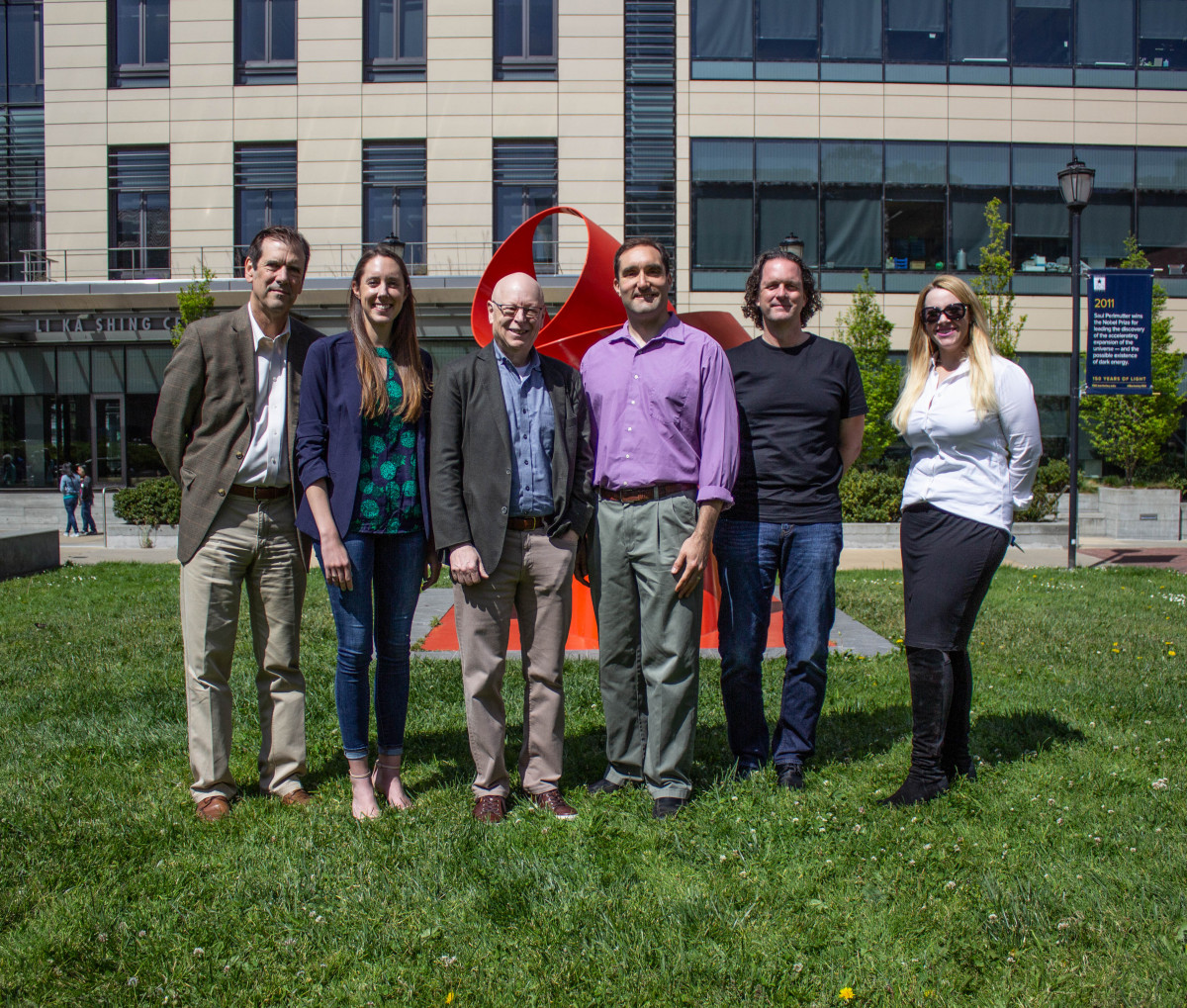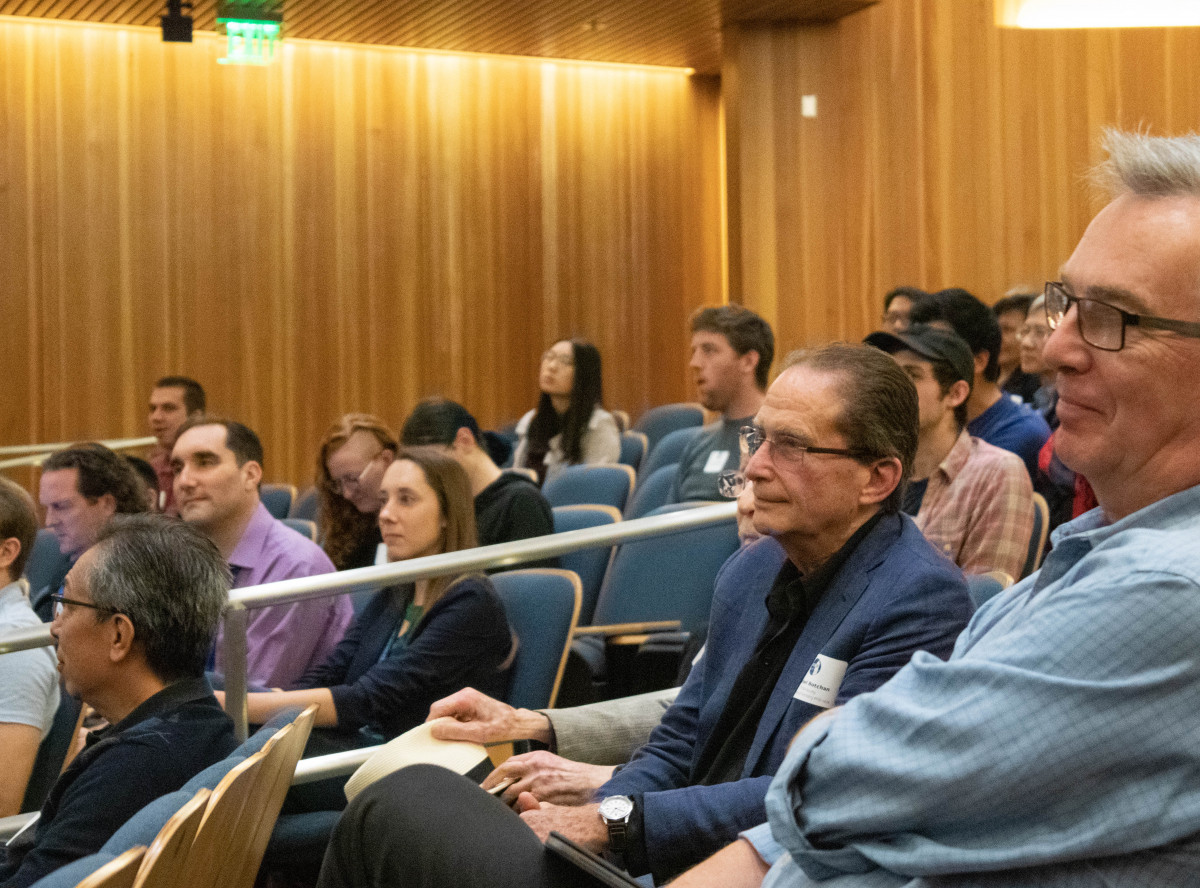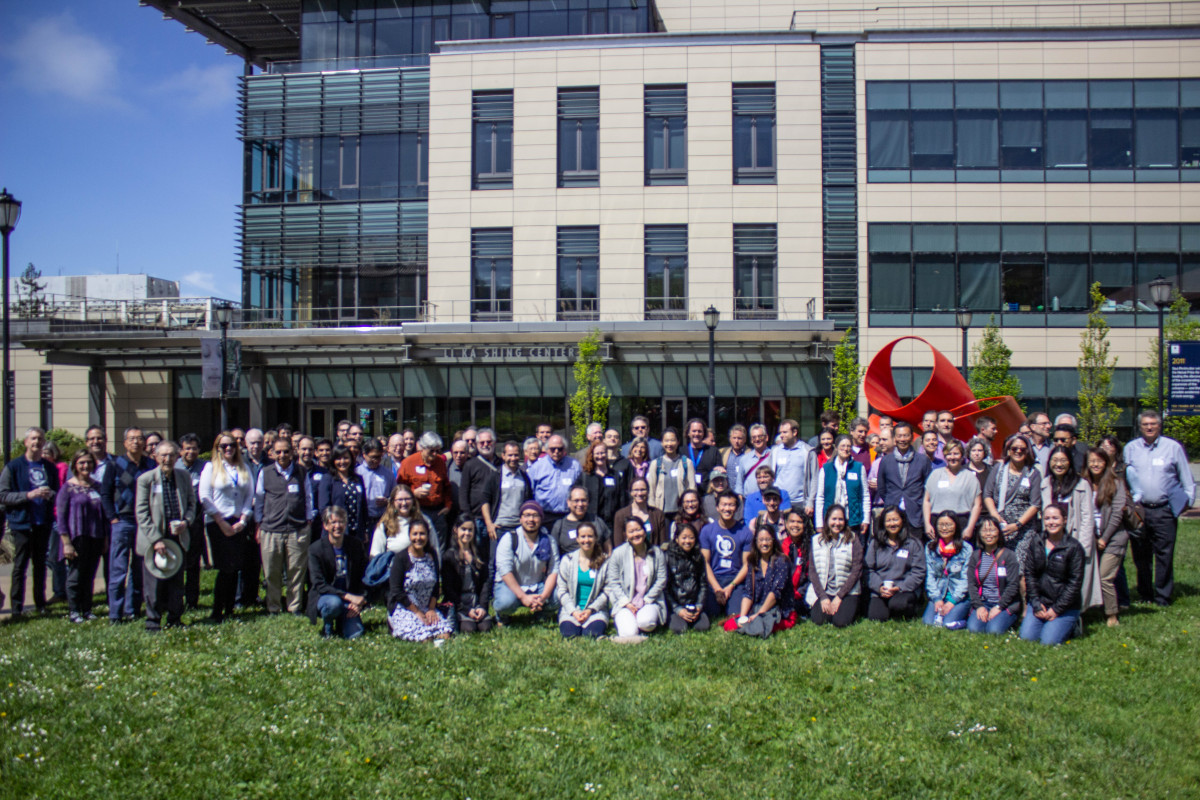
as they enjoy looking at old class
photos. Photo: Río Vargas,
Innovative Design Club
30 years ago, Berkeley was a much different place. The cost of in-state tuition for undergraduates was less than $1,500 a year, the median rent was $392, and the spaces which now hold Life Sciences Addition and Koshland Hall were UC Berkeley parking lots.
Much like campus buildings and rent prices, molecular biology at Berkeley has transformed immensely since 1989. That year, UC Berkeley consolidated more than 10 departments that focused on aspects of molecular biology and formed the Molecular and Cell Biology department as it is known today. Since then, from the discovery of cellular membrane trafficking to breakthroughs in cancer immunotherapy to the advent of the CRISPR revolution, the people of UC Berkeley MCB have been at the forefront of innovation in biology.
On May 4, the MCB community of alumni, faculty, current students and postdocs joined in the celebration of this department history and scientific achievement at the MCB 30 Alumni Symposium. Alumni from as far back as the class of 1968 and from as recently as 2018 gathered to reflect on their time here at Berkeley, share their successes, reconnect with old friends, and network with different generations of MCB alumni.

Raymond Deshaies, Rachel Haurwitz, Michael Gilman,
Victor Holmes, Ed Lein, Janelle Ayres.
Photo: Río Vargas, Innovative Design Club
The event featured nine esteemed alumni speakers with a variety of careers, some of which included CEOs, science communicators, and faculty at other institutions. Their lectures were both stimulating and heartfelt, in which each speaker expounded their current research endeavors and also reflected on how their time at Berkeley was instrumental for their success.
Raymond Deshaies (Biochemistry PhD 1988) had the audience rolling in laughter over his stories of pulling laboratory pranks on his PI, the notoriously serious Nobel Prize winner Randy Schekman. Rachel Haurwitz (PhD 2012) recalled her PI, Jennifer Doudna, tasking her with a project at the beginning of her graduate research focusing on a little-known and rarely-cited DNA sequence known as CRISPR. Victor Holmes (PhD 2001) focused on how MCB provided mentorship, community, and betterment during his time as a graduate student. Holmes said what makes MCB unique is the investment that faculty make in their students, which launches the next generation of scientists, who in turn pay it forward to train the next generation.

listening to talks at the symposium.
Photo: Río Vargas, Innovative Design Club
The success of the Alumni Symposium is proof that the restructuring of molecular biology at UC Berkeley to form MCB 30 years ago invigorated both a high standard for scientific excellence and this strong sense of community and generosity. MCB hopes this event will serve as another reminder that our alumni, regardless of their graduation year or eventual career path, will always be able to bond over shared experiences and call MCB their home.
View more photos from the Alumni Symposium and add your own here!

Photo: Río Vargas, Innovative Design Club